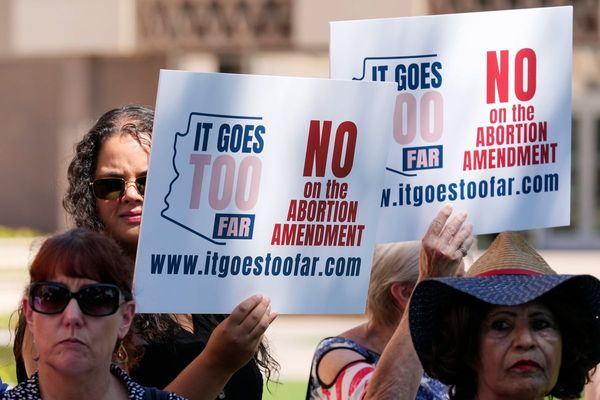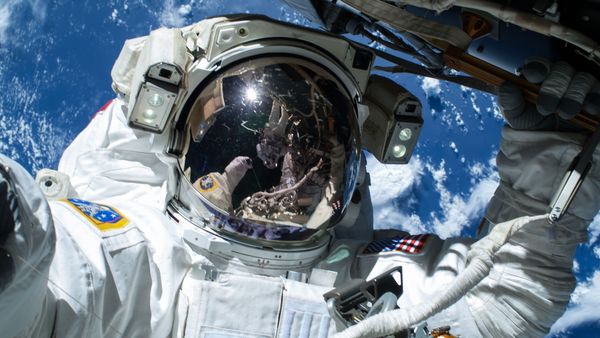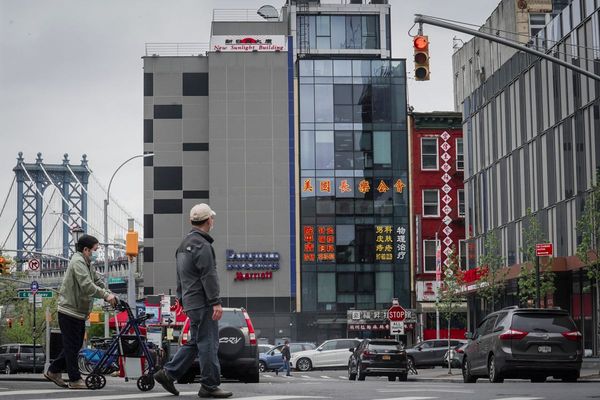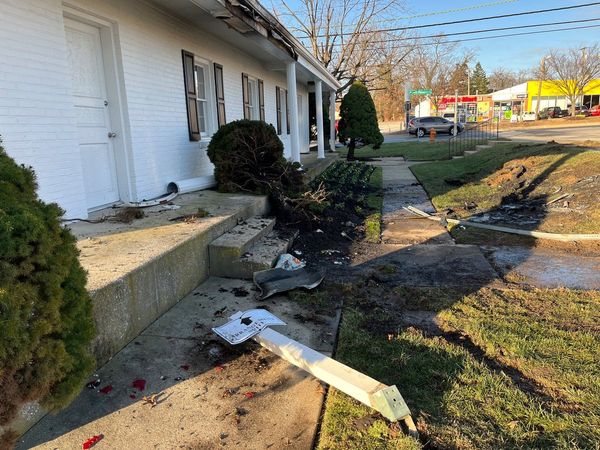
Pro-Palestinian protesters who blocked the entrance of Australia’s Northern Territory-based joint US defence facility with the permission of Traditional Owners said that Indigenous people in Australia shared a strong anti-colonial affinity with Palestinians.
“The colonised people here and the colonised people there share the same grievances, the same hopes, the same dreams and ultimately the same interests,” independent Arrernte artist Declan Furber Gillick, who was one of the protesters blocking the entrance on Friday, told Crikey.
“In my view, [those interests are] access to and sovereignty over our native lands.”
Over the weekend, thousands of people turned out in rallies across Australia to march against Israel’s occupation and heavy bombardment of Gaza in the fortnight since Hamas’ attacks on October 7.
Furber Gillick reiterated that although Palestinians and Indigenous Australians were currently experiencing different forms of colonial violence, both peoples had a shared history of forcible removal and systematic destruction of homes, families, and communities.
“There’s a very strong sense of solidarity between those old Aboriginal activists and the pro-Palestinian resistance struggle here,” he said, adding that both groups had made appeals to international courts and UN bodies for peaceful terms and treaties with their coloniser.
“It’s a real reminder that settler colonialism comes in different extremes.”
Last Friday morning’s protest at Pine Gap kicked off at 5am with a blockade of the Hatt Road entrance into the facility, near Mparntwe (Alice Springs). According to protest organisers, it stalled access of an estimated 50 cars and several buses (100-odd staff) for about three hours.
Protesters reported that short of one man who jumped out of his car “quite irate”, the disruption was peaceful and “well received”.
Police reportedly arrived 54 minutes into the action and requested protesters move on. The group declined, following which police issued a formal warning that failure to “move on” and “cease to loiter on the road” would result in arrest. All bar Jewish Australian protester Gem Walsh, who was locked onto a concrete barrel in the middle of the road, moved off the road.
Walsh had a chain around her wrist that was fitted with a carabiner and hooked onto a pipe, sunk into the centre of a concrete barrel. She told Crikey that the contraption allowed her to detach herself but prohibited anyone else being able to pull her out by force: “The barrel weighed hundreds of kilos. It was too much to move, so it had to be dismantled on site.”
Walsh said that police were unable to dislodge either barrel or person, so called in the fire department, who several hours later successfully severed the pipe with an angle grinder. She said she was subsequently put in the back of a paddy wagon, taken to the Alice Springs Police Station, apprehended in a cell, visited by a nurse, taken to another cell, fingerprinted, handed a charge sheet, and two to three hours later released on bail.
NT Police Force acting commander James Gray-Spence confirmed that both NT police and NT Fire and Rescue Services responded to the protest. Walsh was charged with two offences of “fail to cease to loiter” and “obstruct the public use of a road”, and was bailed to appear in Alice Springs Local Court on November 16 2023.
Walsh reiterated that the whole purpose of the protest was to “disrupt the work happening inside the facility” because of its role in gathering military intelligence and geo-location data — particularly in the Middle East — that was aiding Israeli forces.
“It’s actually a really strategic piece of infrastructure for this current war that Israel is perpetrating and that the United States is actively involved in supporting,” she said.
“By extension we are complicit in that war because we not only support the US rhetorically and politically, but we offer this site as a bastion for technological surveillance.”
The action was designed to draw attention to the plight of Palestinians in Gaza, speak to the “clear violations of laws and conventions” on the part of the Israeli government, and platform the voices of Jewish Australians who condemn the State of Israel for “hiding behind Judaism to commit genocide against the Palestinian people”.
Walsh said that support of Judaism and simultaneous rejection of Zionism was a sentiment shared by many Jewish Australians and Jewish people around the world. While many fear being ostracised from the former if they condemn the latter, she said the messages she received post-protest were encouraging.
“We are told that Israel exists for the continuation of Jewish life and culture and religion and for our safety, but really it is the opposite of that. Look at the rise of anti-Semitism in the wake of the war because people are so appalled that there is no international condemnation of Israel,” Walsh said.
“It has created an unsafe world for Jews.”
The Australian Department of Defence and Defence Minister Richard Marles did not respond to Crikey‘s request for comments by deadline.







